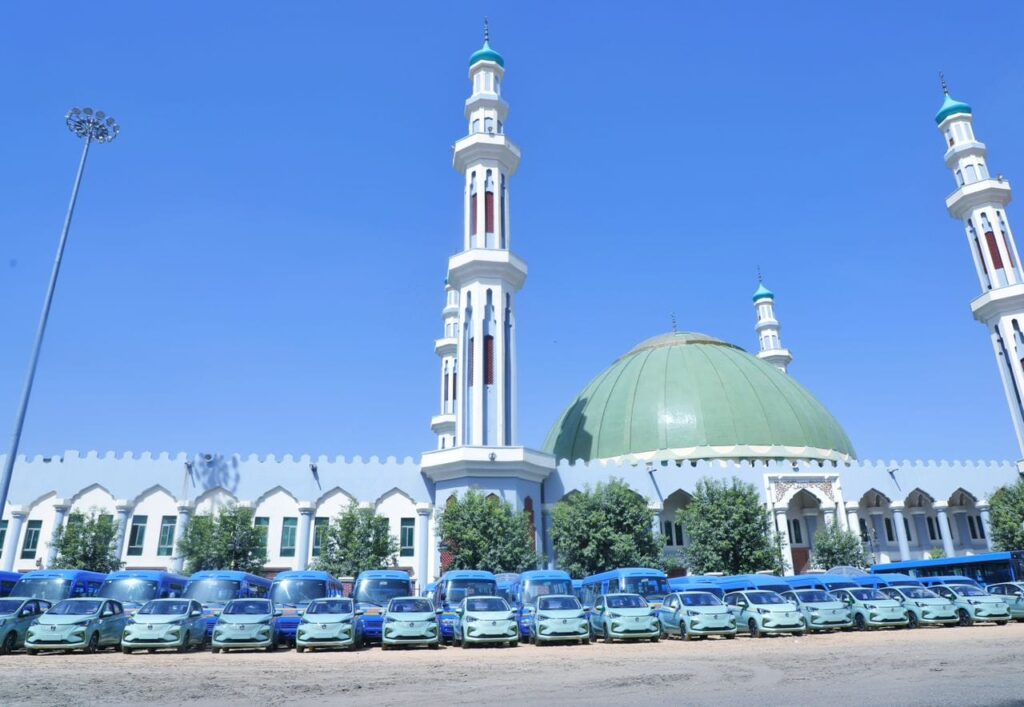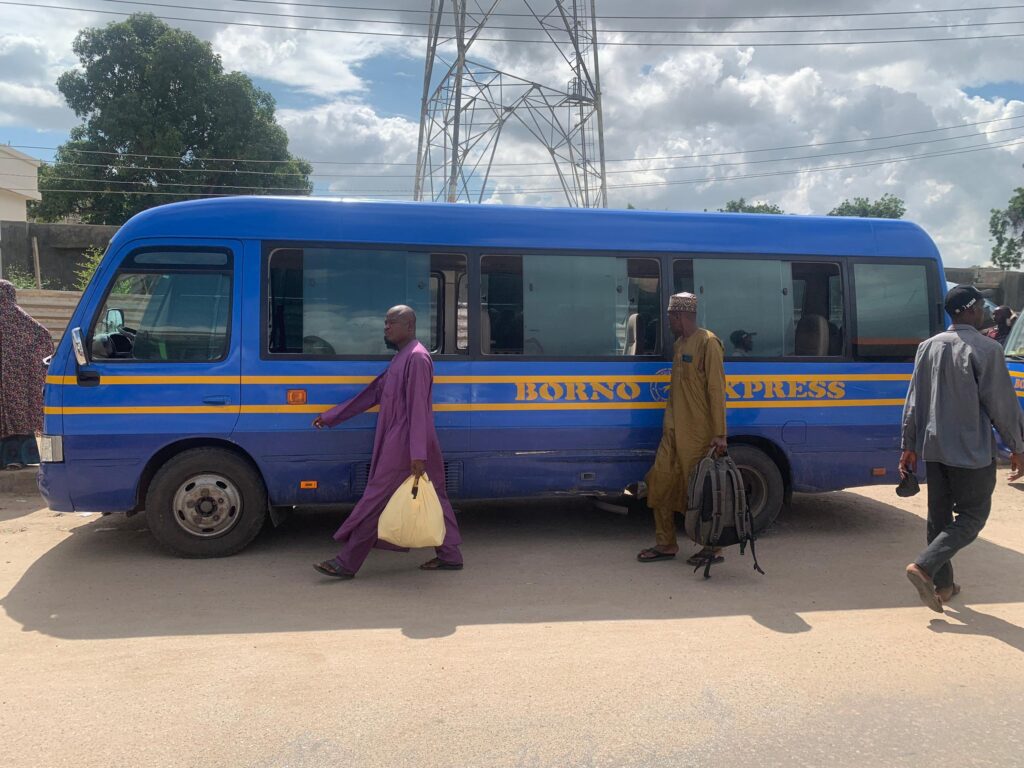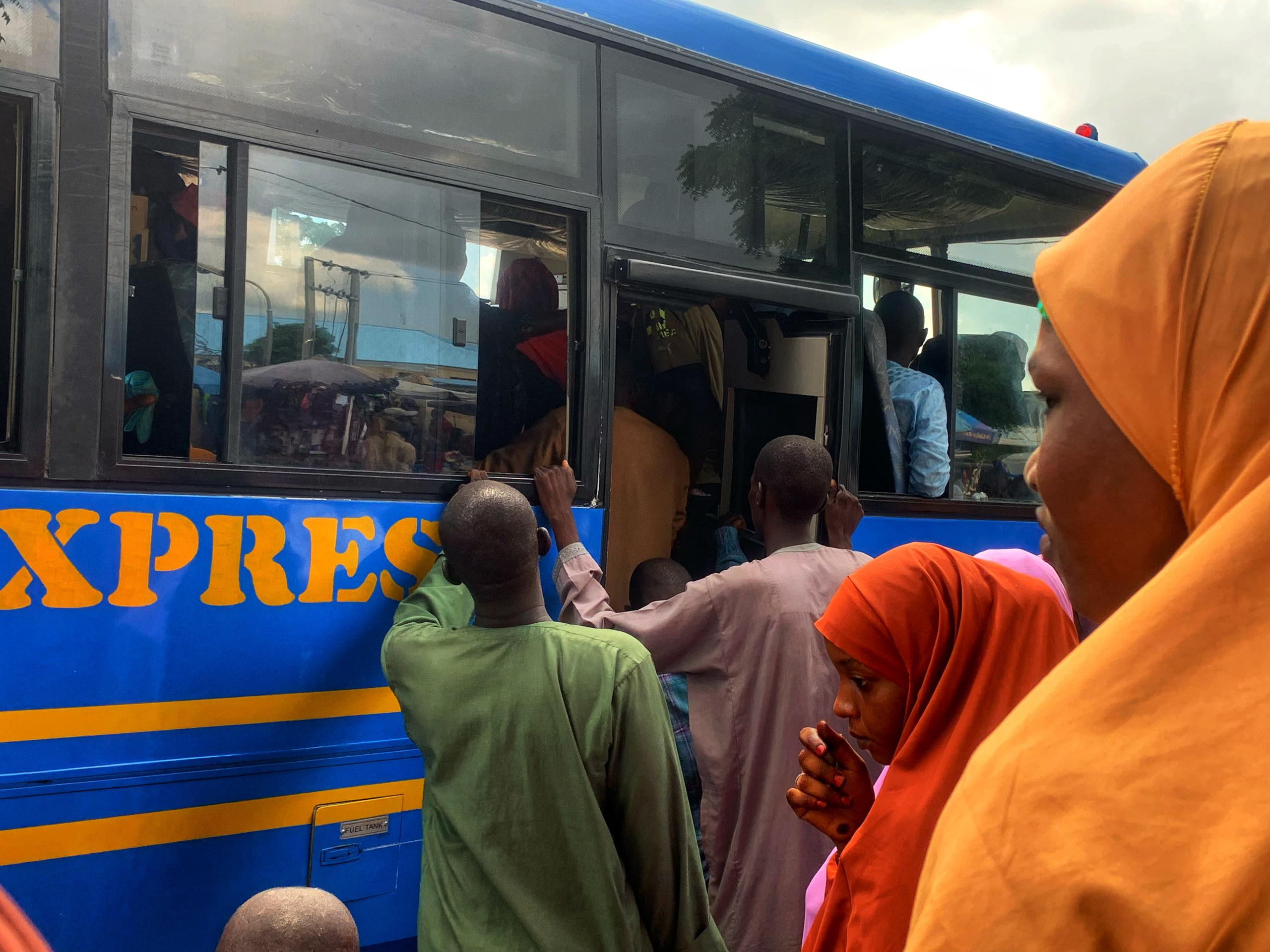On most afternoons in Borno, staff and students gather outside the University of Maiduguri’s gate, waiting for a tricycle to take them home after classes. Sometimes, this wait can stretch to 20 minutes or more, frustrating residents of Maiduguri metropolis. “Waiting was really frustrating, especially after a tiring day,” Aliyu Fatima, a student said. “Sometimes, we have to wait up to an hour just to get a ride home.”
This hardship arose following the removal of fuel subsidies last year by Nigeria’s President Bola Ahmed Tinubu. As a result, petrol prices soared from 195 Naira to 540 Naira, eventually reaching 1200 Naira. This spike led to a sharp rise in transportation costs across Nigeria. In Maiduguri, fares increased by 400%, with trips that previously cost 50 Naira now costing 200 Naira. Civil servants and students, among others, found basic commuting becoming a luxury.
“Transport fares became so high that I sometimes had to choose between buying food and getting to work,” said Madam Rhoda, who works in the security unit at the University of Maiduguri.
In response, the Borno State government introduced mass transit buses- always available and cheaper, offering relief to many, including Madam Rhoda. “If I take a KekeNapep [tricycle], I spend about 800 Naira daily, but with these buses, my fare is reduced to around 300 Naira. It has eased a huge burden,” she said.
Government intervention
Last year December, thousands of Maiduguri residents gathered outside the Shehu of Borno’s palace as the state government launched an additional fleet of vehicles for the mass transit scheme. Borno State Governor Babagana Zulum said the investment in mass transit was meant to provide immediate relief after the fuel subsidy removal.
The Borno State Mass Transport Scheme now includes over 107 vehicles, comprising 35 units of 30-seater coaster buses, 12 units of 15-seater Hummer buses, 10 units of 50-seater gas-powered buses, and 50 electric-powered taxis. The blue and white buses shuttle across key routes, alleviating the burden of transport costs.

“These buses are strategically placed in areas with high commuter traffic, ensuring access to affordable transportation,” said Abdulqadir Ibrahim, a monitoring officer at Borno Express Transport Corporation, which manages the fleet.
Ibrahim explained that the government has kept fares low by using gas-powered and electric vehicles and by covering maintenance and repair costs of the drivers who are assigned routes and make daily returns of upto 40,000 naira to the state government.
“A lifesaver”
Malam Lawan, a bricklayer, usually moves from site to site in search of work, but the rise in transport costs last year made this difficult. “Sometimes I spend money looking for work but find none, wasting my precious cash,” he says. Since the public transport scheme was introduced, however, his expenses have decreased, allowing him to return to his regular routine.
Hajara Mohammed, a student at Borno State University, described the buses as “a lifesaver,” noting that they are affordable and easily accessible, even in outlying areas like Njimtilo, where her school is located. Her friend Fatima adds, “We used to pay 400 Naira to get from school to the post office, which totals around 1,500 Naira daily on transport. With the buses, we save so much more.” This savings makes a significant difference, especially in a state where some earn as little as 6,000 Naira per month.
The public transport system has also created job opportunities in a state with an unemployment rate of 43.25% in 2020. Shehu, a bus driver, shared how the scheme has helped. “I was out of work for a while, but then I was allocated a bus to drive. Now I earn enough to support my family and even help others.”

Dark spots
Despite its positive impact, the system faces challenges. Some drivers, like Suleiman Sani*, report not receiving their salaries for over a year. “It’s been tough,” Suleiman admits, his voice heavy with concern.
Also, lack of supervision means the buses, especially during rush hours, are overloaded and overcrowded. Fatima shares her frustration: “I’ve missed classes because of transport delays. Sometimes we’re packed on the bus like sardines, which is dangerous.”
Still, residents remain hopeful that the government’s intervention will continue to improve. “We appreciate what the government is trying to do,” says Fatima, “but we also hope they address these challenges. Reliable and affordable transportation is essential for our growth and development.”
Despite these hurdles, residents remain hopeful that the government’s intervention will continue to evolve and improve. “We appreciate what the government is trying to do,” Fatima says. “But we also hope they address these challenges.”
This story was produced with the support of Nigeria Health Watch through the Solutions Journalism Network, a nonprofit organisation dedicated to rigorous and compelling reporting about responses to social problems.
The removal of fuel subsidies in Nigeria led to a dramatic rise in petrol prices, causing transportation costs in Maiduguri to soar by 400%. This made basic commuting expensive for residents, including civil servants and students. In response, the Borno State government introduced a mass transit scheme with over 107 vehicles, including gas-powered and electric buses, providing a more affordable and accessible transport option. This initiative alleviated financial burdens and reduced commuting expenses significantly for many residents, while also creating job opportunities in a region with high unemployment rates.
However, despite its benefits, the public transport system faces challenges such as unpaid salaries for some drivers and overcrowding during peak hours. Residents express hope that these issues will be addressed to ensure reliable and affordable transportation. The introduction of mass transit has been described as a "lifesaver" by many, vital for their daily expenses and work opportunities, even though challenges remain to be resolved. Nonetheless, the intervention offers essential relief amid economic hardship following fuel subsidy removal.






